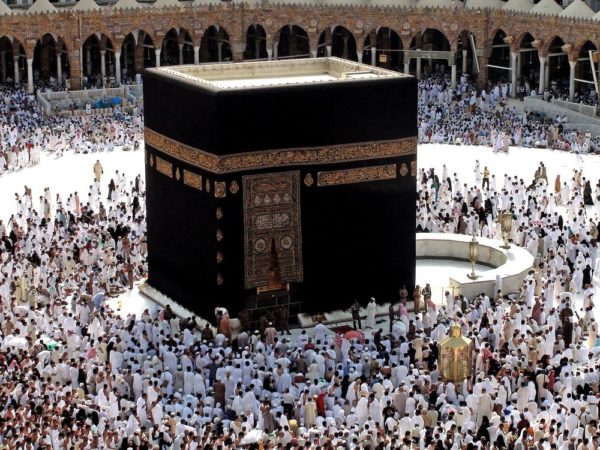Their backs hunched, elderly Muslim pilgrims lean on walking sticks as others in wheelchairs nudge their way into Mecca's Grand Mosque where scores of people are encircling the holy Kaaba.
"Allahu akbar" (God is greater), they chant in unison. Most are Asian and African, among the hundreds of thousands of faithful who have descended on Saudi Arabia's holy city for the annual hajj pilgrimage starting on Thursday.
The Grand Mosque, home of the cube-shaped Kaaba or "House of God" that Muslims believe was built by Abraham 4,000 years ago, was thronged Sunday for prayers and for the year-round minor pilgrimage, or umrah.
With the call to prayer the crowds fall silent, many spreading their prayer rugs on roads leading to the mosque.
"I have never before witnessed such a feeling of happiness," says Aisha, 50, an Algerian pilgrim in a face mask walking hand-in-hand with her son Ahmed.
This year's hajj comes as the authorities strive to protect pilgrims from two deadly viruses, Ebola and Middle East Respiratory Syndrome coronavirus, or MERS.
While Ebola has hit Africa, most MERS cases worldwide have been in Saudi Arabia itself, home to Islam's holiest sites.
Pilgrims from Guinea, Liberia and Sierra Leone, the three nations hardest-hit by Ebola which has killed more than 3,000 people in West Africa this year, have not been allowed in for the hajj.
However Nigeria, where Ebola has killed eight people, was granted permission to send pilgrims to the world's largest gathering of Muslims.
"There was this scare earlier that pilgrims from Nigeria could not participate because of Ebola," Saeed Amisu tells AFP.
Like others from Nigeria, Amisu has had to complete two forms, one at home and another in Saudi, pledging that he had not visited any Ebola-hit town or contacted a patient.

Allahu Akbar!
ReplyDelete